Category: Learn/Brainstorm/Try
-
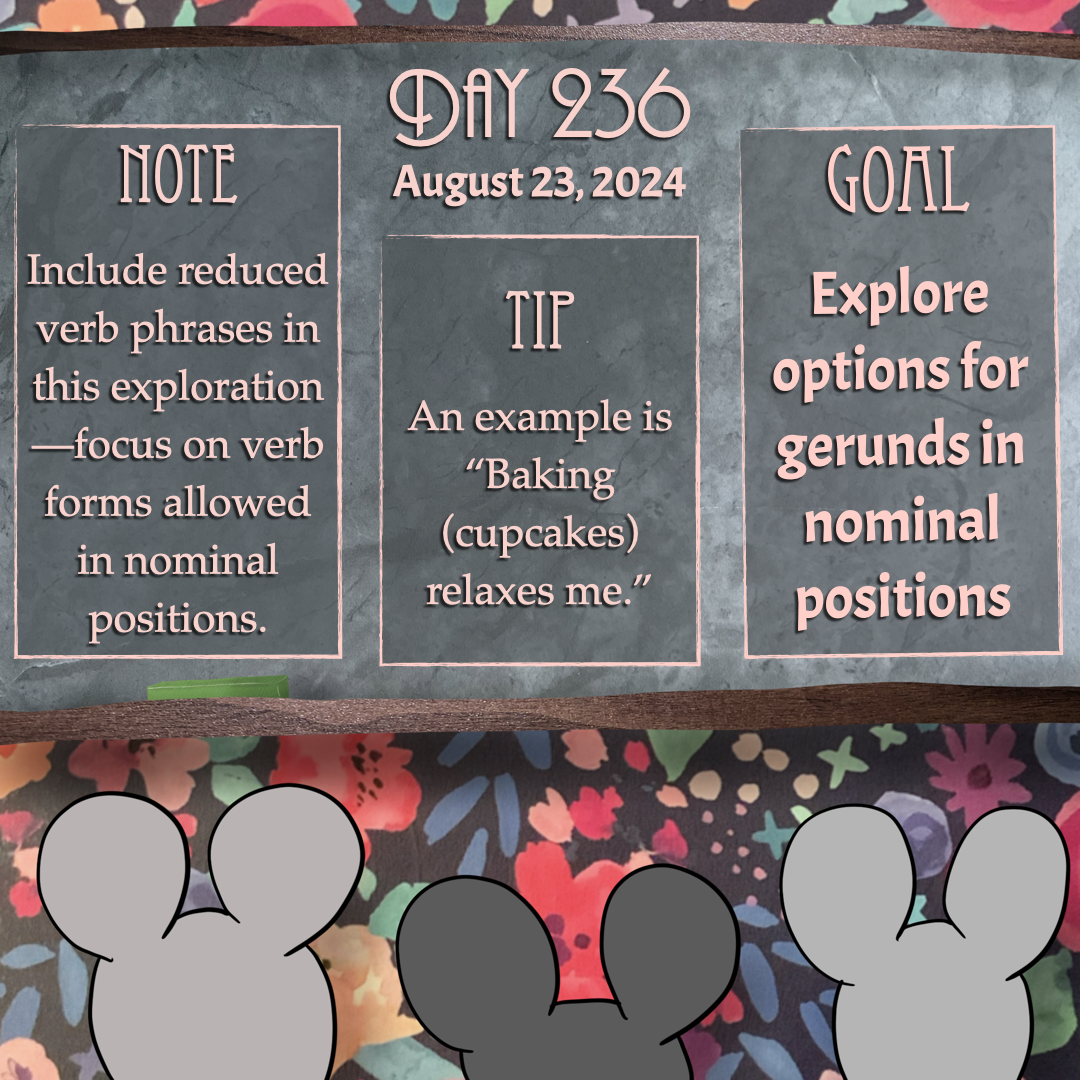
Day 236: August 23, 2024
Goal: Explore options for gerunds in nominal positions Note: Include reduced verb phrases in this exploration—focus on verb forms allowed in nominal positions. Tip: An example is “Baking (cupcakes) relaxes me.” Work focus: Learn/Brainstorm/Try Today’s goal is to explore ways verbs can function as nouns, including gerunds (e.g. “Baking relaxes me”), fuller gerund phrases (e.g.…
-
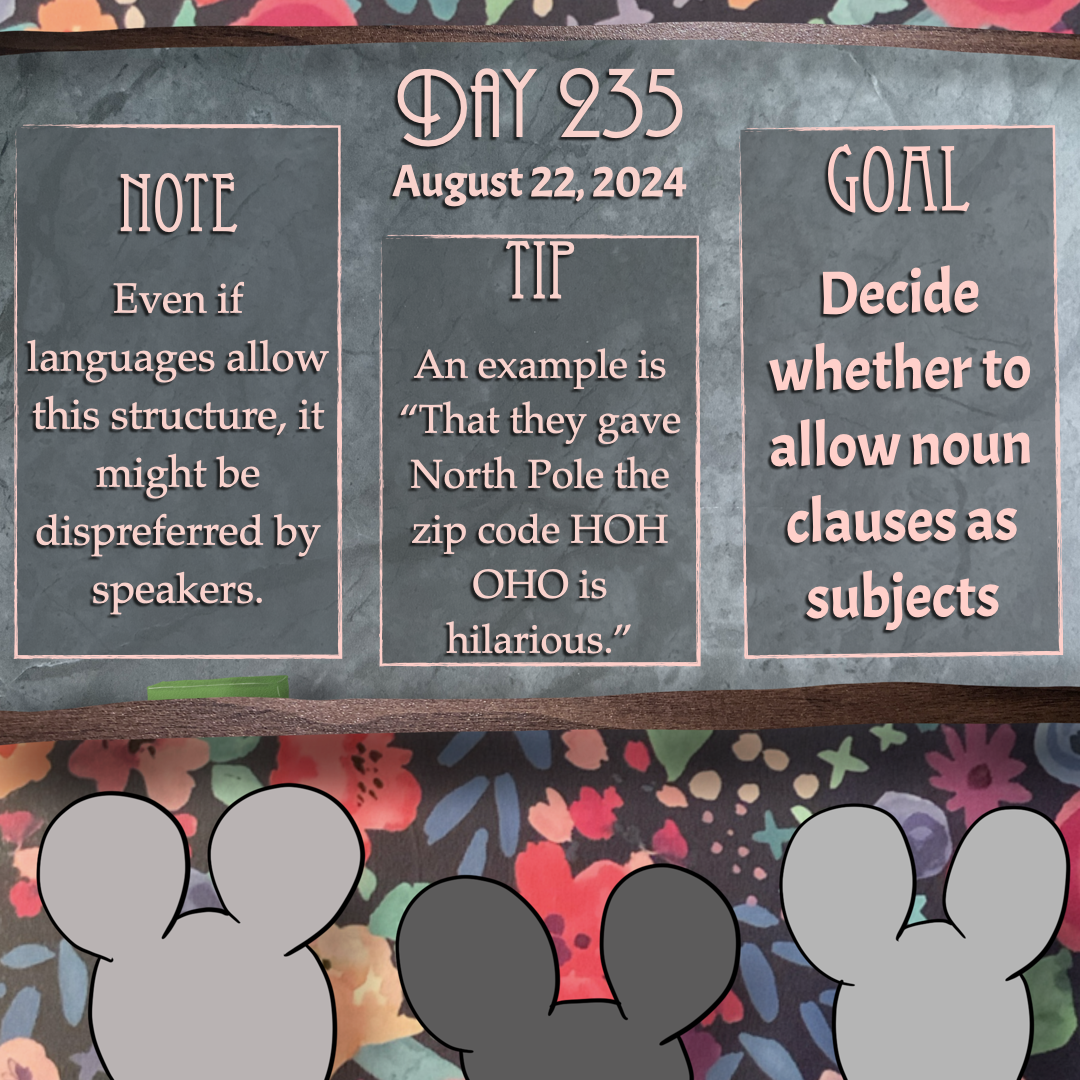
Day 235: August 23, 2024
Goal: Decide whether to allow noun clauses as subjects Note: Even if languages allow this structure, it might be dispreferred by speakers. Tip: An example is “That they gave North Pole the zip code HOH OHO is hilarious.” Work focus: Learn/Brainstorm/Try If your language allows embedded finite clauses to function in nominal positions, consider if…
-
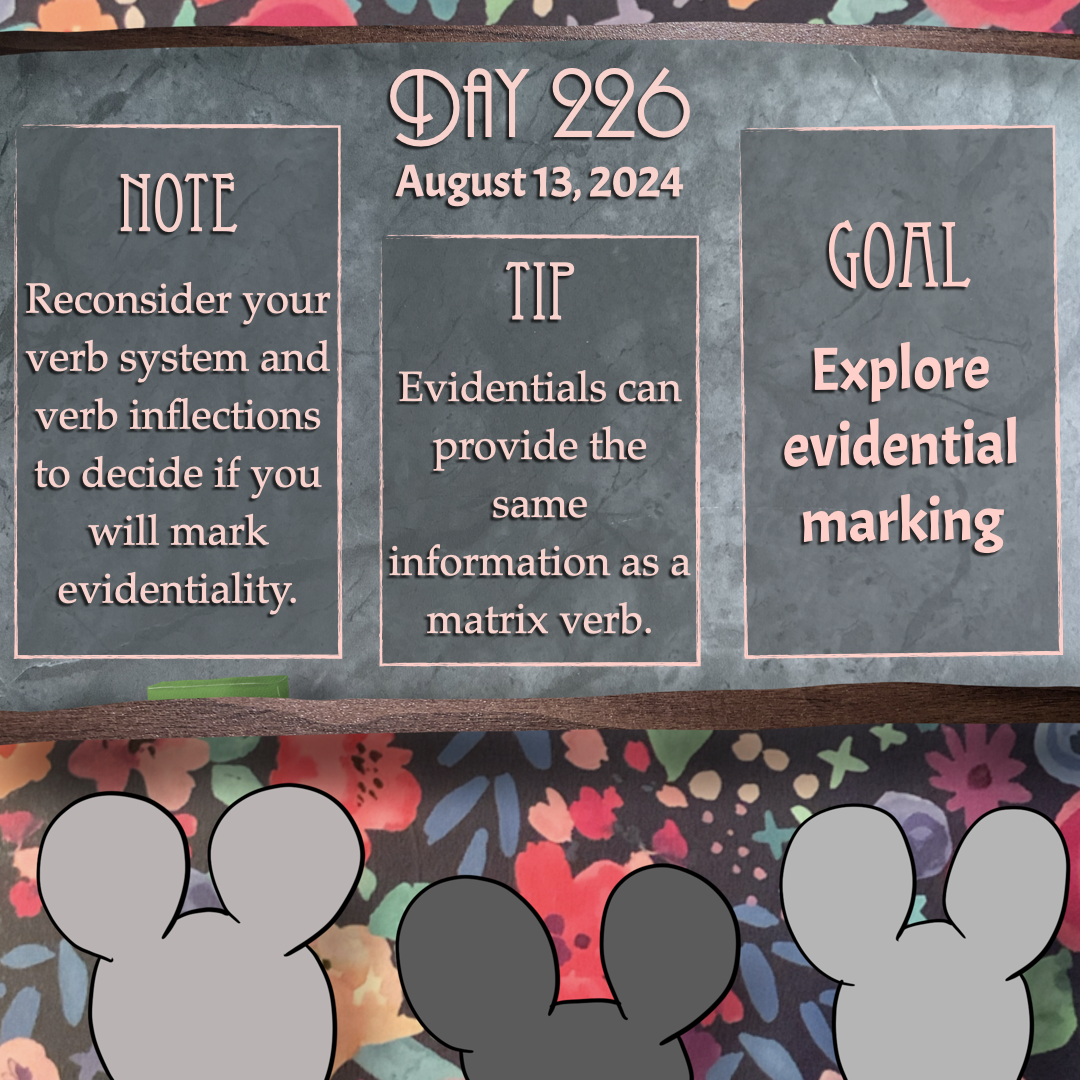
Day 226: August 13, 2024
Goal: Explore evidential marking Note: Reconsider your verb system and verb inflections to decide if you will mark evidentiality. Tip: Evidentials can provide the same information as a matrix verb. Work focus: Learn/Brainstorm/Try Another verbal area to explore is evidential markers. These markers indicate how the speaker knows the information in the clause. A common…
-
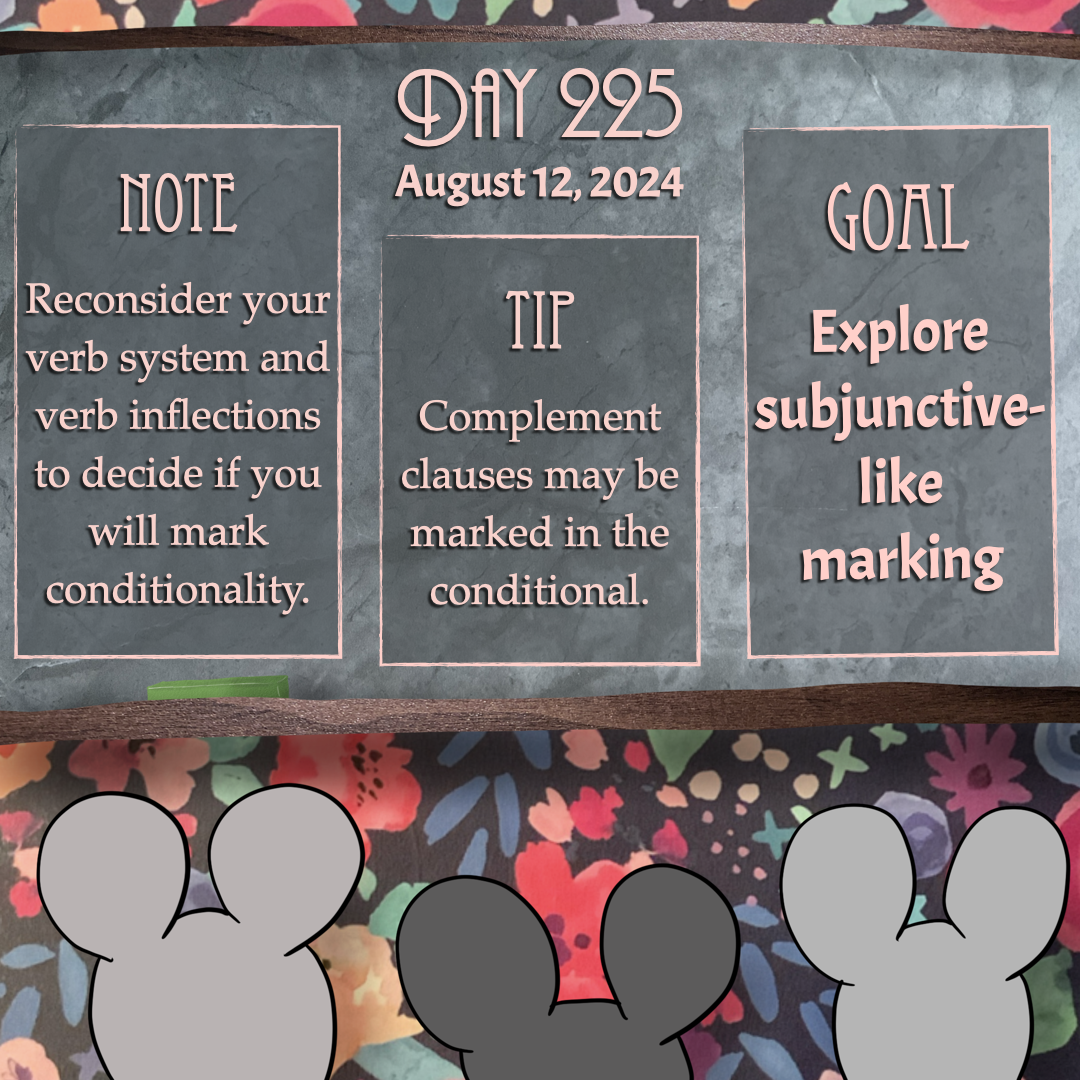
Day 225: August 12, 2024
Goal: Explore subjunctive-like marking Note: Reconsider your verb system and verb inflections to decide if you will mark conditionality. Tip: Complement clauses may be marked in the conditional. Work focus: Learn/Brainstorm/Try Take a step back and reconsider your verb system and the inflections you’ve created so far. Explore options for marking information that generally falls…
-
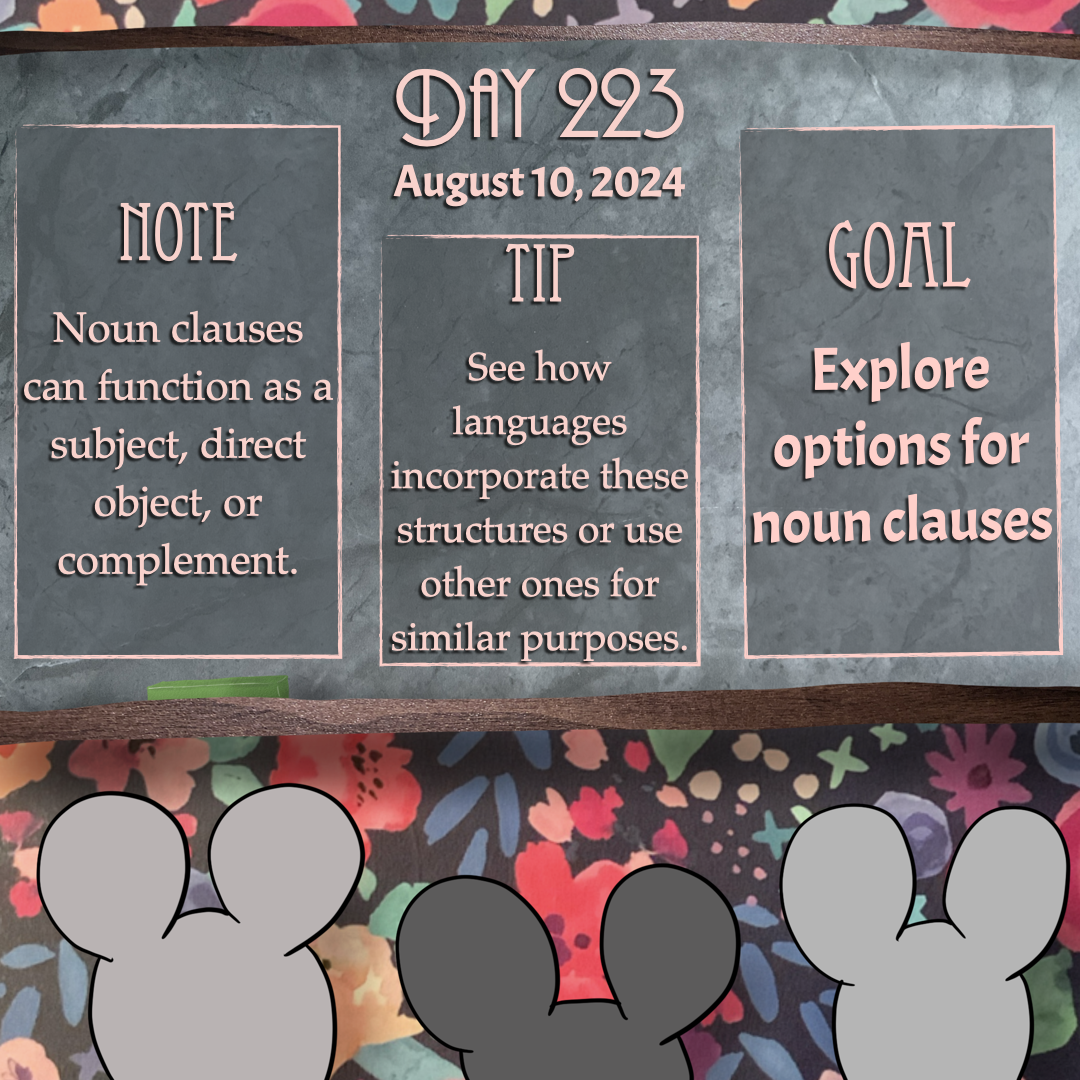
Day 223: August 10, 2024
Goal: Explore options for noun clauses Note: Noun clauses can function as a subject, direct object, or complement. Tip: See how languages incorporate these structures or use other ones for similar purposes. Work focus: Learn/Brainstorm/Try Noun clauses are finite clause structures that function as nominal elements, such as the object of a verb. Common verbs…
-
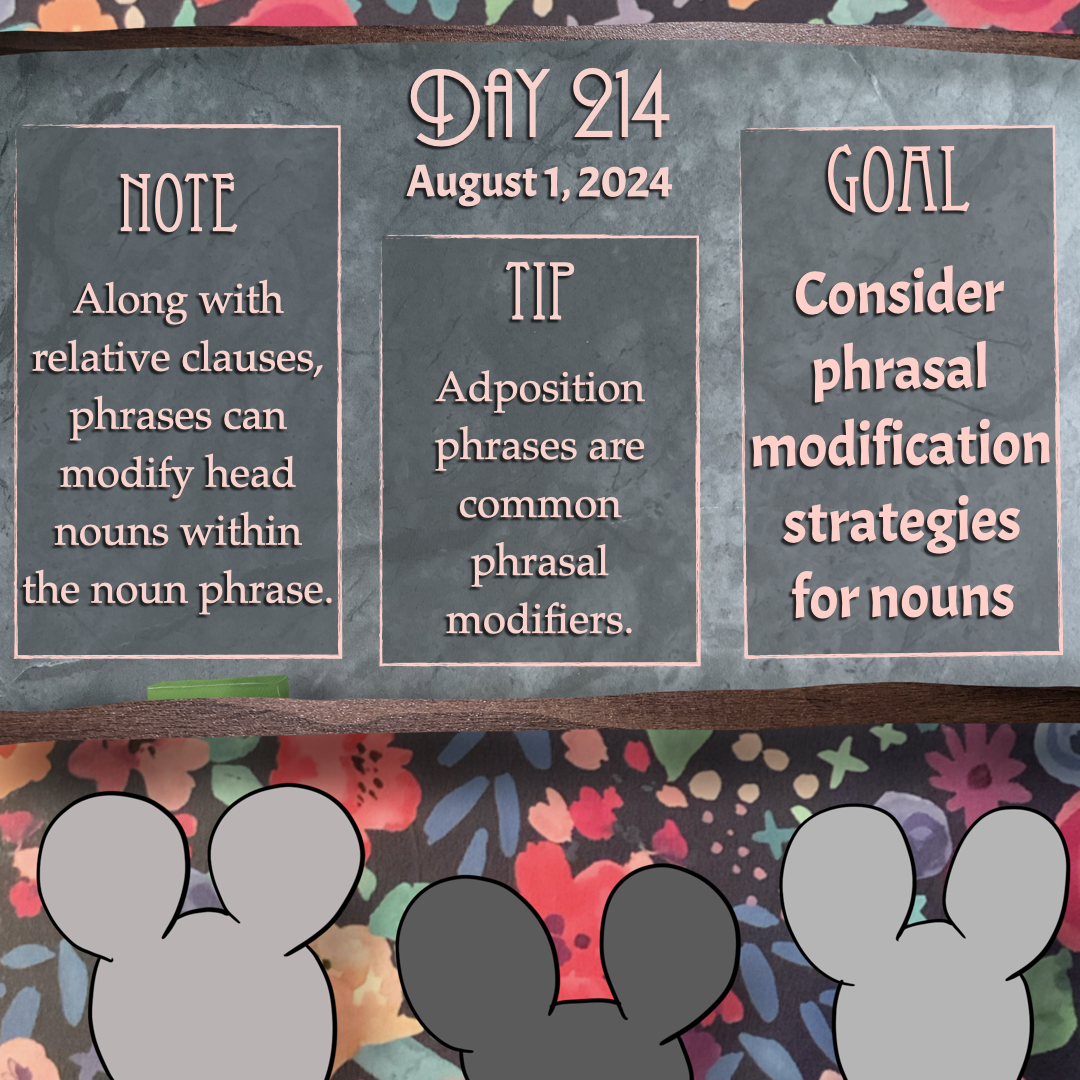
Day 214: August 1, 2024
Goal: Consider phrasal modification strategies for nouns Note: Along with relative clauses, phrases can modify head nouns within the noun phrase. Tip: Adposition phrases are common phrasal modifiers. Work focus: Learn/Brainstorm/Try Relative clauses modify head nouns in full clause form, but phrases can also modify head nouns, such as adposition phrases. For instance, in “The…
-
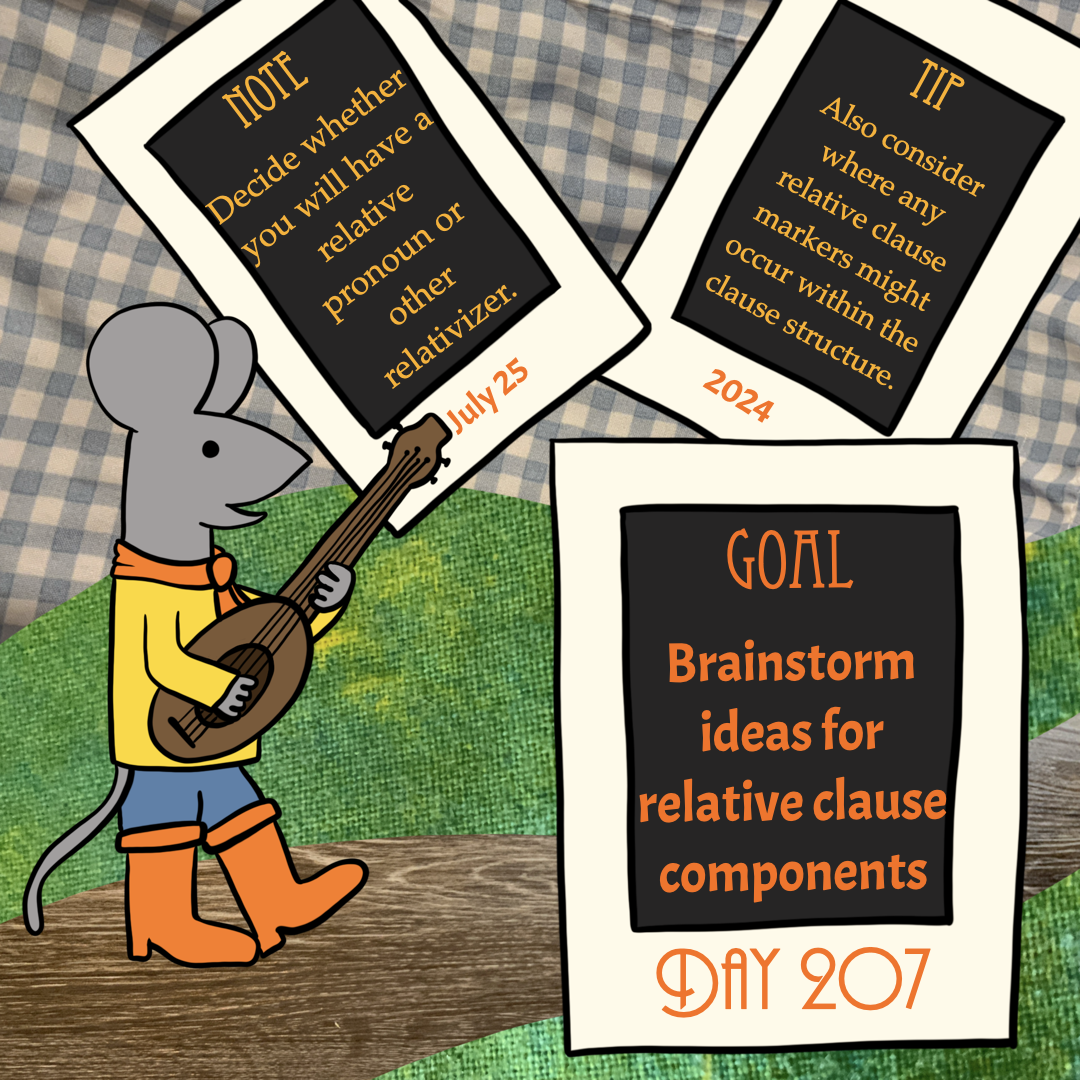
Day 207: July 25, 2024
Goal: Brainstorm ideas for relative clause components Note: Decide whether you will have a relative pronoun or other relativizer. Tip: Also consider where any relative clause markers might occur within the clause structure. Work focus: Learn/Brainstorm/Try Continue your relative clause brainstorming by focusing on the internal structures of the relative clause, including options for relative…
-
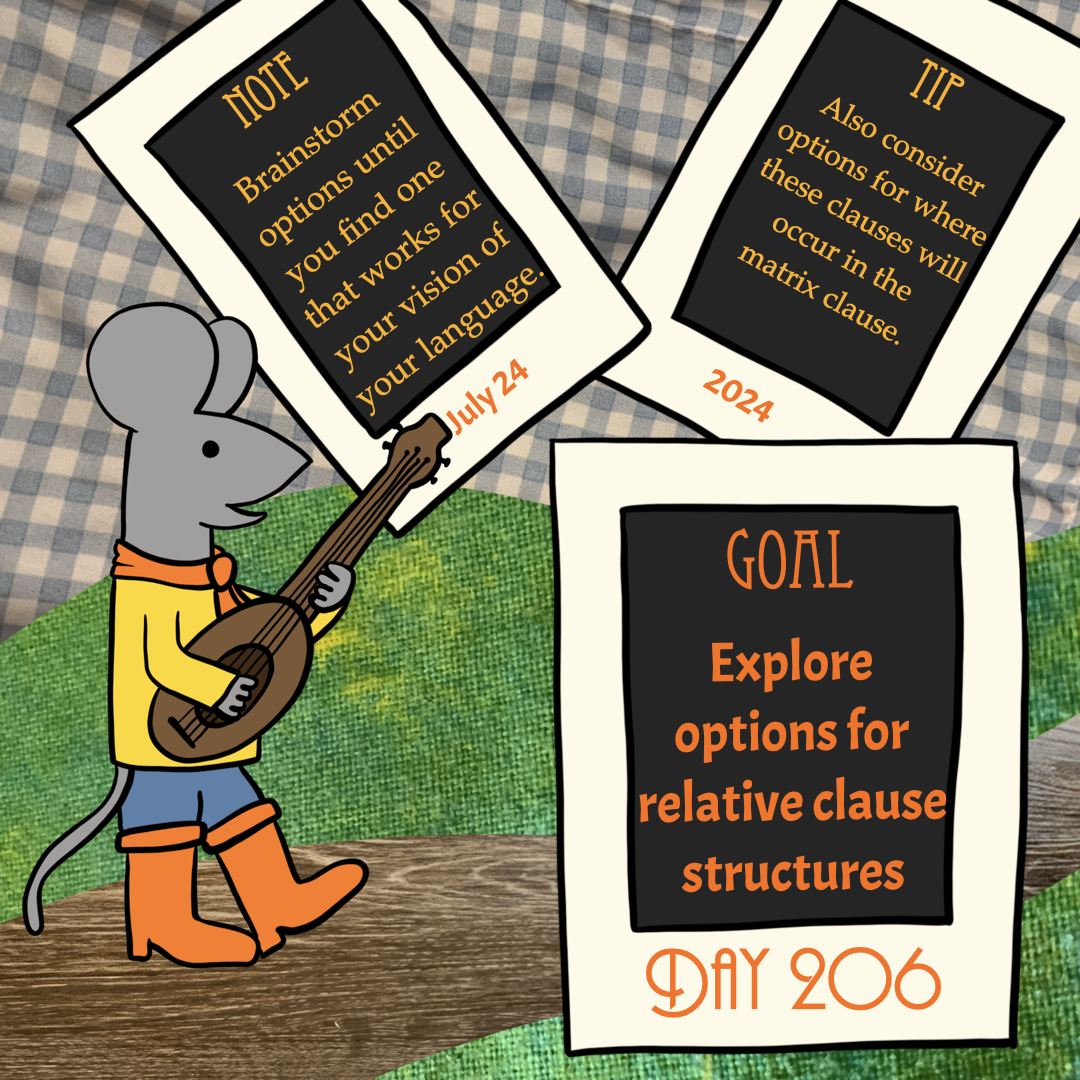
Day 206: July 24, 2024
Goal: Explore options for relative clause structures Note: Brainstorm options until you find one that works for your vision of your language. Tip: Also consider options for where these clauses will occur in the matrix clause. Work focus: Learn/Brainstorm/Try The goal for today shifts attention to relative clauses and their structures. Spend your time today…
-
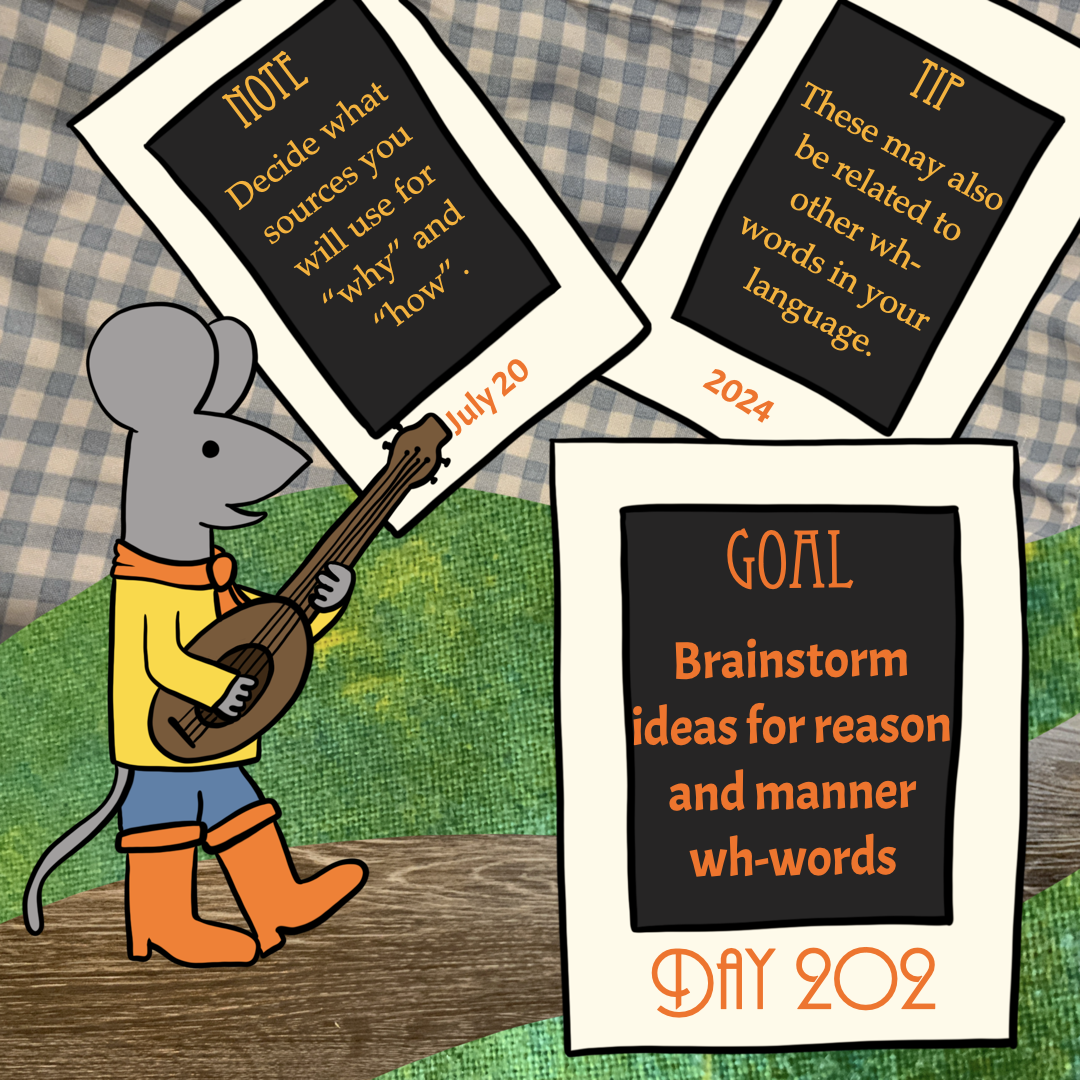
Day 202: July 20, 2024
Goal: Brainstorm ideas for reason and manner wh-words Note: Decide what sources you will use for “why” and “how”. Tip: These may also be related to other wh-words in your language. Work focus: Learn/Brainstorm/Try The goal for today shifts the focus to reason and manner wh-words, or words that roughly translate as “why” and “how.”…
-
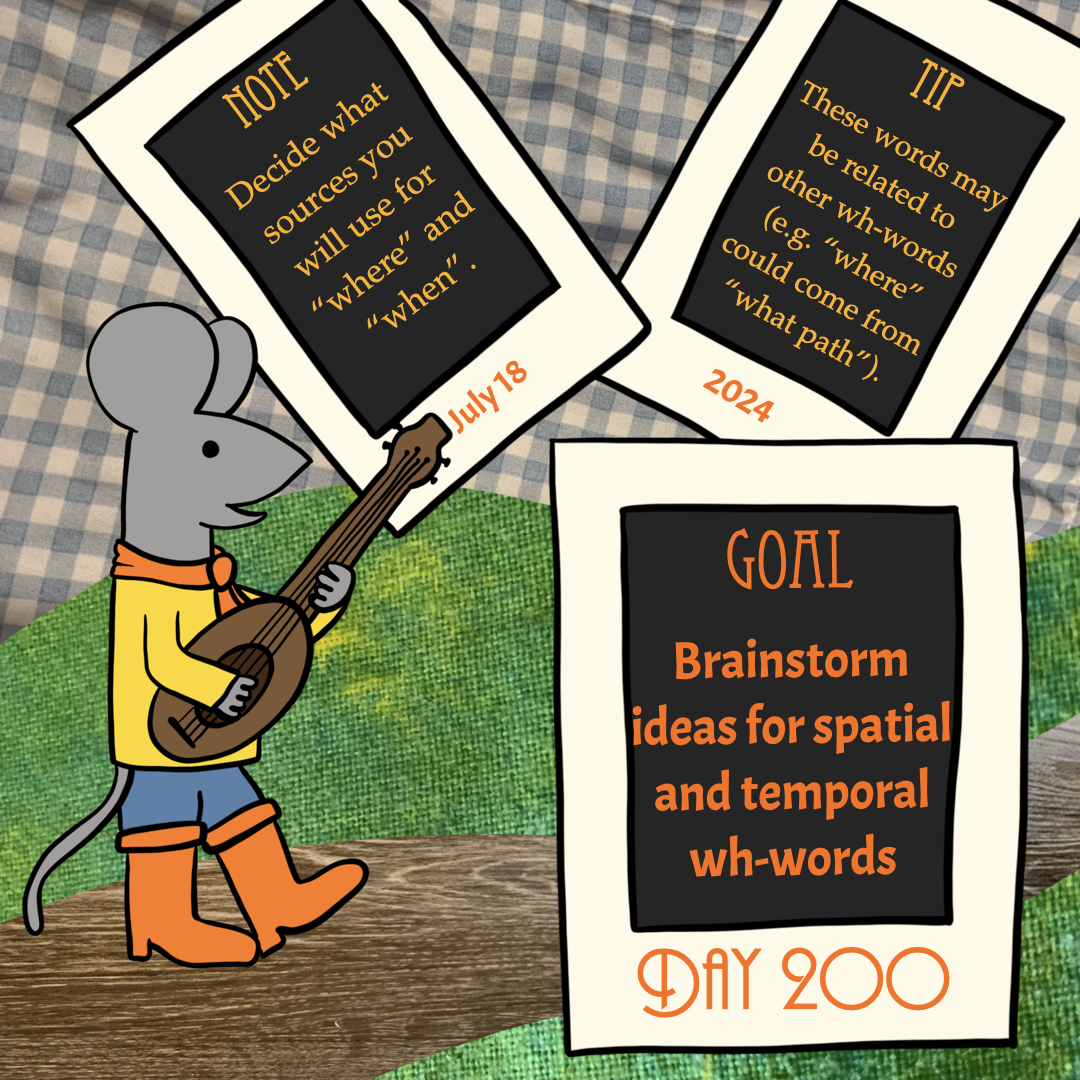
Day 200: July 18, 2024
Goal: Brainstorm ideas for spatial and temporal wh-words Note: Decide what sources you will use for “where” and “when”. Tip: These words may be related to other wh-words (e.g. “where” could come from “what path”). Work focus: Learn/Brainstorm/Try Brainstorm ideas for how you will create wh-words that target spatial (“where”) and temporal (“when”) information. If…